Dr Philip Blakely (University of Cambridge) - Academy Director
| Philip Blakely received his Ph.D. from the University of Cambridge in 2010, having studied the flow of relativistic fluids onto black holes, under the supervision of Dr Nikos Nikiforakis. Since then, he has been a Research Computing Support Associate with the Centre for Scientific Computing, specialising in the design and optimization of multiphysics simulation software. He also lectures on Linux, C++ and CUDA for the MPhil in Scientific Computing. | 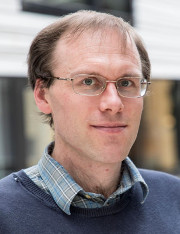 |
Sam Selvini (University of Cambridge)
| Sam Selvini is a coordinator at the Centre for Scientific Computing. She should be your first point of contact for any questions about booking places on the course and accommodation. Contact: shortcourses@csc.cam.ac.uk | 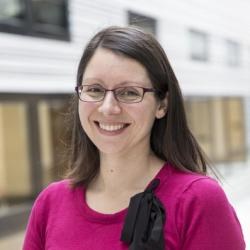 |
Professor James Davenport (Department of Computer Science, Bath)
|
James Davenport is Hebron and Medlock Professor of Information Technology at the University of Bath, where he leads the HPC activity: procurement, the current cloud/inhouse comparison projects, and Bath's role in the Isambard ARM-powered HPC project. He received BA (1974) and PhD (1980) degrees from Cambridge, and a retrospective MMath in 2011. He has used C since 1983, and lectured it since 1985. He has taught MPI, notably in Timisoara, where he has been awarded an Honorary Doctorate. He is on the IEEE's P3109 Arithmetic Formats for Machine Learning working group. |
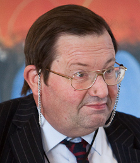 |
Professor Matt Probert (Department of Physics, York)
|
Matt is Professor of Computational Physics at the University of York. He graduated with a Physics degree from the University of Birmingham in 1989, and after working in industry for 2 years, he returned to Birmingham for a PhD in computational physics / molecular dynamics. He then did postdoc research in ab initio modelling of materials in Durham, UCL and Cambridge before moving to the University of York in 2000.
He has extensive experience of scientific computing and is one of the lead developers of the CASTEP electronic structure code (www.castep.org) He has been a user of successive national supercomputers since the late 1990s. He has been Chair of the EPSRC-funded UKCP High End Computing consortium since 2006 and is one of the founding members of the HPC Autumn Academy. He is on the management Board for several national Tier-2 supercomputers and is also the Director of the N8 Centre of Excellence in Computationally Intensive Research (https://n8cir.org.uk/).
Matt teaches extensively on the Theoretical Physics degree at York, and especially enjoys teaching HPC to MPhys/PhD students.
|
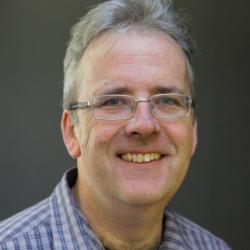 |
Dr David Henty (EPCC)
|
David Henty is EPCC's Director of Teaching and leads all of EPCC's HPC training activities. He has been Programme Director for EPCC's on-campus HPC Programmes since their inception in 2001, and organises two on-campus and two online course per year. David directly managed all training for the HPCx and ARCHER national HPC services, runs EPCC's PRACE Training Centre and regularly teaches courses for the new ARCHER2 service. He also led the creation of the Supercomputing MOOC for the FutureLearn platform. The course topics have ranged from introductory material for a general audience to advanced parallel programming techniques. His research interests are in parallel programming models and optimising performance on HPC systems. |
|
Dr Phil Hasnip (Department of Physics, York)
| https://www.csc.cam.ac.uk/files/styles/inline/public/media/probert_small... Hasnip received his Ph.D. in Physics from the University of Cambridge in 2001, where he developed methods to apply first-principles quantum mechanics simulations to study the properties of metal surfaces. He then worked as a post-doc in the Dept of Materials Science and Metallurgy at Cambridge, before moving to the University of York in 2005, where he has continued his research into first-principles materials simulations, and in particular the development of the high-performance CASTEP research software (www.castep.org). In 2018 he was appointed an EPSRC Research Software Engineering Fellow, where his research is focused particularly on making scientific simulation software user-friendly, scalable, efficient and reliable. | 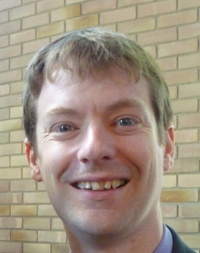 |
Dr Peter Hill (University of York)
| Peter Hill is a Research Software Engineer at the University of York. He received his PhD in Plasma Physics from the University of Warwick in 2012, followed by post-docs modelling turbulence at CCFE near Oxford, and CEA in Cadarache, France, before joining the York Plasma Institute (YPI) in 2015. At the YPI, he helps researchers develop software, and is a lead maintainer on two large plasma physics codes, BOUT++ and GS2. He also runs a Coding Club at the University of York, teaching sustainable practices to everyone from students to professors. | 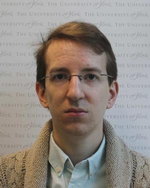 |
Dr Chris Richardson (University of Cambridge)
| Chris Richardson is a Research Software Engineering Fellow at the BP Institute. Over the years, he has worked on numerical problems in Geosciences, Chemistry, Applied Maths and Engineering. He is an active developer of the popular open-source Finite Element software package, FEniCS, which has encouraged projects with industrial partners, such as Mitsubishi and Rolls-Royce, as well as international academic collaborations. In the university, he has been keen to promote research software engineering best practice, organising an annual Computational Seminar Day, and RSE Seminars at the Maxwell Centre. As part of the UK RSE leadership, he is helping to shape the RSE movement nationally. | 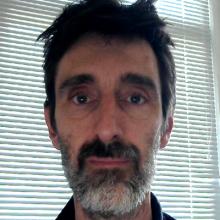 |
Dr Steve Millmore (University of Cambridge)
|
Stephen Millmore received his PhD from the University of Southampton in July 2010 under the supervision of Dr Ian Hawke. He joined the Laboratory for Scientific Computing in a postdoctoral position researching the effects of ultrasonic excitation on supercooled water droplets as an anti-icing mechanism, sponsored by Boeing Research and Technology. He has since worked on further projects for Boeing Research and Technology, simulating lightning strike on elastic-plastic substrates, and the numerical modelling of additive manufacturing techniques. He lectures for the MPhil in Scientific Computing for the course "Introduction to Computational Multiphysics", and supervises written assignments utilising the techniques taught in this course. |
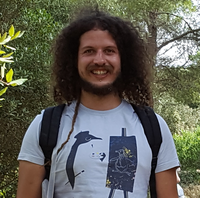 |

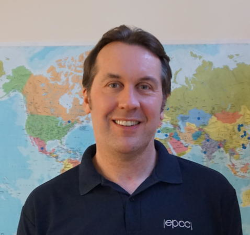 /p>
/p>